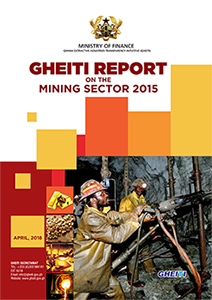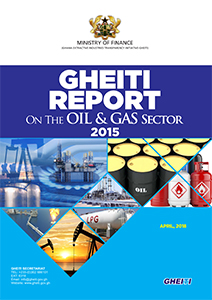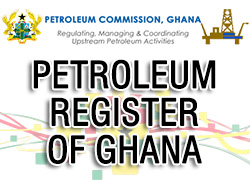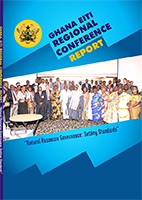| The role of Minerals Commission in the mining industry |
 |
 |
 |
|
AIDED by the performance of the Minerals Commission over the last two decades, the mining sector has played a key role in the development of Ghana's economy, with production increasing significantly, export earnings growing from 20 per cent to 45 percent of total export and Gross Domestic Product (GDP) improving from 1.5 per cent to six per cent. However, the indications are that the continued development of the industry and the transformation of the rich mineral resources into a sustainable economic development, that would help reduce poverty and satisfy the social needs of the people, remains a challenge. First, the focus of the mining sector has been on only a few minerals, notably gold, bauxite, manganese and diamonds. Second, illegal mining and the use of explosives is intensifying with .counter¬productive effects on the environment, as well as implications for safety and security, and third, is the problem of unlicensed sand¬winning operations. Other issues of concern to the mining industry have to do with low compensation levels and lack of transparency in the administration of mining revenues and the utilisation of the portion released to the District Assemblies. It is, therefore, in the resolve to settle these difficulties that a new draft regulations under the Minerals and Mining Act, 2006 (Act 703) are being finalised for passage by Parliament. Indeed the role of the Minerals Commission in resolving these problems can also not be over-emphasised. Under the Minerals Commission Act, 1993 (Act 450) the Minerals 'Commission is responsible for the regulation and management of the utilisation of the mineral resources of Ghana, as well as the co-ordination and implementation of policies related to mining. The Commission is mandated to formulate recommendations of national policy for the exploration and exploitation of mineral resources, with special reference to establishing national priorities, having regard to the national economy. The Commission is also mandated to monitor the implementation of laid-down government policies on minerals and report to the minister, monitor the operations of all bodies or establishments with responsibility for minerals and report to the Minister, and receive and assess public agreements relating to minerals and report to Parliament. The Commission's mandate also requires it to secure a firm basis of comprehensive data collection on national mineral resources and the technologies of exploration and exploitation for national decision making, and perform such other functions as the Minister may assign it. Since the establishment of the Minerals Commission, government has invested considerable resources to create an attractive investment climate for the mining industry. It is, therefore, is pursuit of the objective of promoting an attractive investment climate and the development of a thriving mining industry that a new Board has been constituted for the Commission. The nine-member Board, with Mr. Fred Ohene-Kena as its chairman, was inaugurated on August 5, 2009. As was rightly noted by the Minister for Lands and Natural Resources, Alhaji Collins Dauda, when inaugurating the Board, the Commission's task is an arduous one. An arduous task because there is the need to promote diversification into other minerals and the addition of value to the minerals won. There is also the need to put in place mechanisms to curb illegal mining and other negative activities on a sustained basis, a direct responsibility of the Inspectorate Division of the Minerals Commission, which has the mandate to control the acquisition and use of explosives for mining and related activities. As required by the Mining Regulations and in view of government's determination to support efforts of building capacity to occupy relevant managerial positions in the mining sector, the Minerals Commission Board is also required to ensure that the necessary skills development training programmes are implemented on the various mines. Again, in view of the numerous environmental, social and related mining community problems, the Minerals Commission and, for that matter, the Board must assist the Environmental Protection Agency (EP A), the key regulatory agency on the environment in Ghana, to ensure compliance with environmental regulations and requirements by the mining companies. This responsibility requires the building of a comprehensive database on the environmental and social issues in the mining sector so as to regularly inform appropriate policy development. The Minster has, therefore, proposed the creation of a department for the control and supervision of the social and environmental commitments of the mining companies and their eventual fulfillment. This outfit, according to Alhaji Dauda, should serve as a liaison between the EPA and the relevant local authorities and the Land Valuation Board in the implementation of the environmental and social policies of the mining industry. With these interventions, the legitimate expectation is that the mining sector could become more relevant, benefit the mining communities and contribute to a sustainable economic development of the country. The writer is an officer of the Information Services Department Source: Ghanaian Times |










